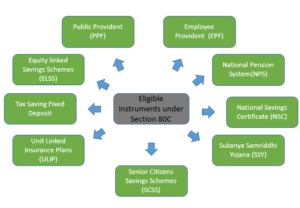
User Intent
People often wonder why Tax Deducted at Source (TDS) is deducted from their salary, professional fees, or interest income. This article provides a detailed, step-by-step guide to help you understand the concept, its applications, benefits, limitations, and comparisons with other tax collection methods.
Introduction
TDS, or Tax Deducted at Source, is a tax collection mechanism where the government ensures tax payments in advance. The payer (employer, bank, or organization) deducts tax before making payments to the recipient. This system helps in preventing tax evasion and ensures a steady flow of revenue for the government.
Understanding why TDS is deducted can help individuals and businesses manage their finances efficiently. Let’s dive deeper into the concept.
Definition of TDS
TDS is a system introduced by the Income Tax Department of India to collect tax at the source of income generation. According to the Income Tax Act, a specific percentage of tax must be deducted when making payments such as salaries, rent, professional fees, commissions, and interest.
For example, if a company pays a consultant Rs. 50,000 and the applicable TDS rate is 10%, the company will deduct Rs. 5,000 and pay Rs. 45,000 to the consultant while depositing Rs. 5,000 with the government.
Application of TDS in Detail
TDS is applicable in multiple areas, ensuring tax compliance. Below are its key applications:
1. Salary Income
- Employers deduct TDS based on income slab rates under Section 192.
- Employees must submit investment proofs to adjust tax liability.
2. Interest Income
- Banks deduct TDS on Fixed Deposit (FD) and Recurring Deposit (RD) interest if the annual interest exceeds Rs. 40,000 (Rs. 50,000 for senior citizens).
- Section 194A covers this deduction.
3. Professional Fees & Consultancy Payments
- Professionals and consultants face 10% TDS deduction under Section 194J.
- Companies must deposit TDS within the due date.
4. Rent Payments
- If annual rent exceeds Rs. 2,40,000, TDS at 10% is applicable under Section 194I.
- Both residential and commercial rent are subject to TDS.
5. Commission & Brokerage
- TDS at 5% applies to commissions exceeding Rs. 15,000 per year under Section 194H.
Benefits of TDS
TDS plays a crucial role in tax administration and financial planning. Let’s explore its benefits in detail.
1. Prevents Tax Evasion
By deducting tax at the source, the government ensures tax is collected before money reaches the taxpayer. This prevents income concealment and tax evasion.
2. Regular Tax Collection for Government
TDS ensures a steady flow of tax revenue throughout the financial year instead of waiting for taxpayers to pay lump-sum taxes at year-end.
3. Reduces the Burden on Taxpayers
Rather than paying a large sum at the end of the financial year, taxpayers pay small deductions over time, making tax payments more manageable.
4. Simplifies the Tax Payment Process
The process is automated, reducing errors and the burden on both taxpayers and the tax department.
5. Ensures Compliance
With penalties for non-deduction or late deposit of TDS, businesses and individuals are encouraged to remain tax-compliant.
Limitations of TDS
While TDS is beneficial, it has some drawbacks that taxpayers should be aware of.
1. Cash Flow Issues for Individuals
Individuals receiving payments after TDS deduction may experience cash flow issues, especially if they have planned expenses.
2. Refund Delays
If excess TDS is deducted, taxpayers need to file an Income Tax Return (ITR) for a refund, which can take months.
3. Compliance Burden for Businesses
Companies must deduct, deposit, and file TDS returns on time. Non-compliance results in penalties and interest charges.
4. Complexity in TDS Rates & Rules
Different sections, limits, and exemptions make TDS calculations complicated for individuals and businesses.
Comparative Table: TDS vs. Other Tax Collection Methods
| Feature | TDS | Advance Tax | Self-Assessment Tax |
|---|---|---|---|
| Timing of Payment | At the time of income payment | Paid in installments before year-end | Paid after financial year-end if tax is due |
| Applicability | Salaries, interest, rent, etc. | Business professionals, freelancers, high-income individuals | Taxpayers who have not paid sufficient tax |
| Ease of Compliance | Automatic deduction by payer | Requires quarterly estimation and payment | Paid voluntarily by the taxpayer |
| Refund Process | Required if excess TDS is deducted | Not required unless overpaid | Not applicable |
| Penalty for Non-Payment | Interest and penalties for non-deduction or late deposit | Interest on late payment | Penalty and interest charges |
Conclusion
TDS is a crucial mechanism in the Indian taxation system that ensures timely tax collection and reduces the risk of evasion. While it has some limitations, its benefits far outweigh the drawbacks. Understanding how TDS works helps individuals and businesses stay compliant, manage their finances efficiently, and avoid penalties.
FAQs
1. Can I avoid TDS deduction?
Yes, if your total income is below the taxable limit, you can submit Form 15G (for individuals) or Form 15H (for senior citizens) to the payer to avoid TDS deduction.
2. How can I check my TDS deduction?
You can check your TDS details in Form 26AS on the Income Tax Department’s official website.
3. What happens if my employer does not deduct TDS?
The employer may face penalties, and you might still be liable to pay taxes when filing your ITR.
4. Is TDS applicable on all incomes?
No, TDS applies only to specified payments such as salary, rent, interest, commissions, and professional fees exceeding the prescribed limit.
5. How do I claim a refund for excess TDS deducted?
You can claim a TDS refund by filing an Income Tax Return (ITR) and mentioning the excess amount deducted.

For site: https://www.incometax.gov.in
